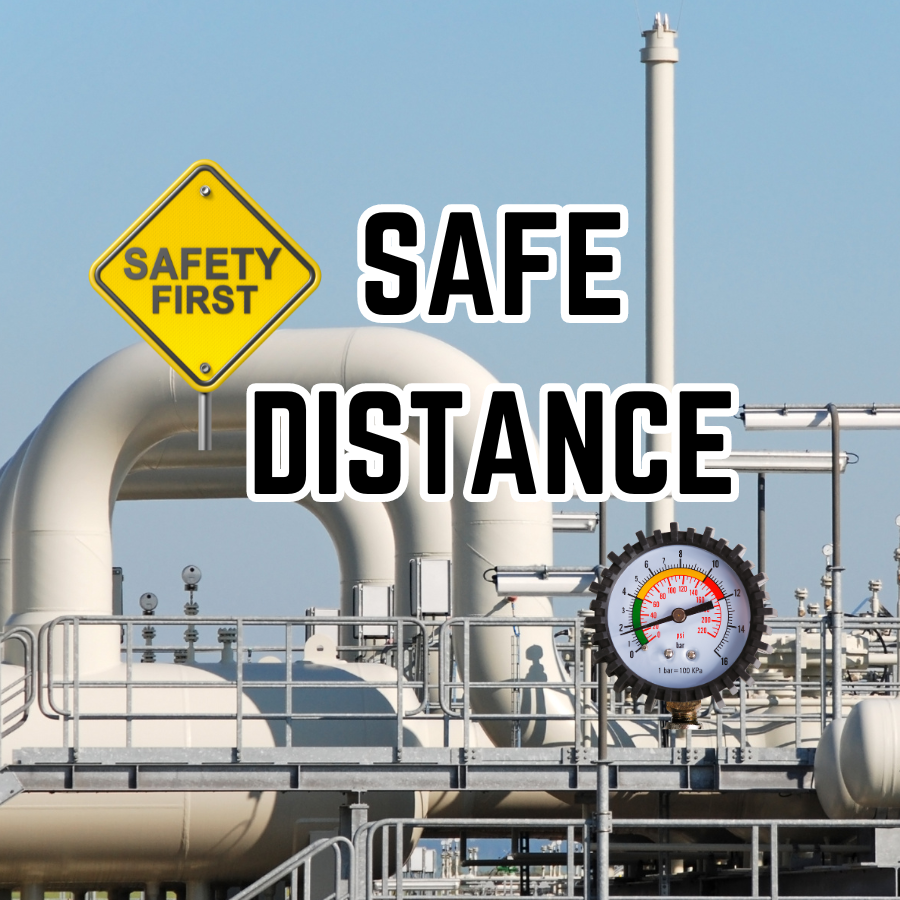How to Find a Job as a Piping Stress Engineer?
Piping stress engineering is a specialized field in the oil & gas, power, chemical, and petrochemical industries. With the growing demand for safe and efficient piping systems, skilled stress engineers are in high demand. However, securing a job in this field can be challenging, especially for beginners.
In this guide, we’ll explore the steps to finding a job as a piping stress engineer, from required skills to job search strategies.
1. Understanding the Role of a Piping Stress Engineer
A piping stress engineer is responsible for analyzing piping systems to ensure they can withstand thermal expansion, pressure, weight, vibration, and external forces. This role is crucial for preventing failures that could lead to safety hazards or operational downtime.
Key responsibilities include:
✔️ Conducting stress analysis using software like Caesar II, AutoPIPE, or ROHR2
✔️ Ensuring compliance with industry codes and standards (ASME B31.3, ASME B31.1, API 579, etc.)
✔️ Designing and optimizing pipe support systems
✔️ Collaborating with piping designers, structural engineers, and process engineers
2. Required Skills & Qualifications
To become a piping stress engineer, you typically need:
Educational Background
✅ A bachelor’s degree in mechanical engineering, civil engineering, or a related field.
✅ A master’s degree in stress analysis, finite element analysis (FEA), or piping design (optional but beneficial).
Technical Skills
✅ Proficiency in stress analysis software (Caesar II, AutoPIPE, FEA tools).
✅ Strong understanding of ASME codes (B31.3, B31.1, B31.4, B31.8), API standards, and company specifications.
✅ Knowledge of piping layout and support design.
✅ Basic understanding of finite element analysis (FEA) for complex stress evaluation.
Soft Skills
✅ Problem-solving and analytical thinking.
✅ Communication skills for working with multidisciplinary teams.
✅ Attention to detail for reviewing calculations and drawings.
An up-to-date and practical reference book on piping engineering and stress analysis, this book emphasizes three main concepts: using engineering common sense to foresee a potential piping stress problem, performing the stress analysis to confirm the problem, and lastly, optimizing the design to solve the problem.
3. Gaining Experience & Certifications
If you’re a fresher or transitioning into piping stress engineering, consider:
✔️ Internships & Entry-Level Jobs – Look for graduate trainee positions in EPC companies, consulting firms, or construction companies.
✔️ Certifications & Courses – Taking ASME, API, or Caesar II training programs can enhance your resume.
✔️ Hands-on Projects – Working on real-world piping problems (even as personal projects) can boost your understanding.
✔️ Learning Software – Gain proficiency in stress analysis tools and support modeling.
4. Building a Strong Resume & Portfolio
Your resume should clearly highlight your:
🔹 Educational qualifications
🔹 Relevant software skills
🔹 Internship or project experience
🔹 Knowledge of codes and standards
🔹 Certifications and training programs
If you have experience, include details of projects you’ve worked on, such as:
🔹 Pipe stress analysis for high-temperature systems
🔹 Seismic analysis of piping systems
🔹 Equipment nozzle load calculations
A LinkedIn portfolio showcasing your projects can also improve your chances of being noticed by recruiters.
5. Where to Search for Jobs?
Job Portals & Websites
🔹 LinkedIn – Follow companies, apply for job postings, and engage with industry professionals.
🔹 Indeed, Glassdoor, Naukri, Oil & Gas Job Search – Popular platforms for engineering job openings.
🔹 Company Websites – Many EPC and engineering companies post job vacancies directly on their career pages.
Recruitment Agencies
Consult agencies specializing in oil & gas and engineering roles. Some well-known agencies include:
✔️ NES Fircroft
✔️ Brunel Energy
✔️ Airswift
6. Networking & Industry Connections
Networking is key to securing a job in piping stress engineering. Many openings are not publicly advertised, and referrals play a major role in hiring.
🔹 Join LinkedIn Groups related to piping design and stress analysis.
🔹 Participate in industry webinars and conferences (e.g., ASME, SPE events).
🔹 Connect with professionals in EPC and design firms.
🔹 Join professional organizations like ASME, SPE, and NACE.
Engaging with professionals in the field can lead to job referrals and mentorship opportunities.
7. Preparing for Interviews
Once you land an interview, focus on both technical and behavioral questions.
Common Technical Interview Topics:
🔹 Basics of pipe stress analysis (loads, supports, thermal expansion).
🔹 ASME B31.3 & API 579 code-related questions.
🔹 Stress analysis case studies (e.g., solving an overstressed piping scenario).
🔹 Nozzle load calculations and equipment-piping interaction.
Common Behavioral Questions:
🔹 “Tell me about a time you solved a piping stress issue.”
🔹 “How do you handle tight deadlines?”
🔹 “Describe a challenge you faced in a project and how you solved it.”
Tip: If required, be ready to showcase your past projects or perform a stress analysis case study during the interview.
Also, visiting PipingStress.Net would be highly beneficial for anyone preparing for a piping stress engineering interview. The blogs contain technical articles that can help candidates strengthen their understanding of key topics.
Recommended Blog Posts Before an Interview:
1. Common Mistakes Made by Piping Stress Engineers
• Helps candidates understand typical pitfalls and how to avoid them.
• Shows real-world challenges that interviewers might ask about.
2. Safety Relief Valve (PSV) Discharge Systems & Piping Stress Analysis
• Many interview questions focus on PSV piping due to its complexity and high-stress impact.
3. Fire Water Piping Stress Analysis in Industrial Plants
• Covers essential piping stress topics, such as flexibility, support selection, and code compliance.
4. Interaction Between Pressure Vessel Shells and Piping Systems
• A common concern in stress analysis, often questioned in interviews.
5. Reboiler Piping Stress Analysis
• Covers a critical application of stress engineering in process plants.
Reading these articles will help candidates gain confidence, understand industry challenges, and prepare for technical discussions in interviews.
8. Alternative Paths & Career Growth
If you don’t land a piping stress job immediately, consider alternative paths such as:
✅ Starting in a piping design role – Learning piping layouts and supports can help you transition into stress analysis later.
✅ Working as a structural engineer – Many concepts in structural stress analysis overlap with piping stress engineering.
✅ Freelancing & Contract Work – Some engineers work on short-term contracts or freelance stress analysis projects.
✅ Further Studies & Specialization – Pursuing a master’s degree in piping engineering or structural analysis can open advanced career opportunities.
Long-Term Career Growth
With experience, you can progress to roles such as:
✔️ Senior Piping Stress Engineer
✔️ Lead Stress Engineer
✔️ Piping Engineering Manager
✔️ Independent Consultant
Final Thoughts
Finding a job as a piping stress engineer requires technical expertise, networking, and persistence. If you’re just starting out, focus on gaining skills and certifications and connecting with industry professionals. By building a strong portfolio and preparing well for interviews, you can increase your chances of securing a role in this specialized field.







This blog is intended as a guide to determining the minimum safe spacing of plants and equipment in Oil Refineries, Petrochemical Complexes, and similar installations.
The spacing recommendations will apply in the absence of Clients' standards or supplement such standards where necessary. They are based on current industry practice.
The spacing recommendations aim to ensure that available plot areas are used economically without affecting personnel safety or plant vulnerability.